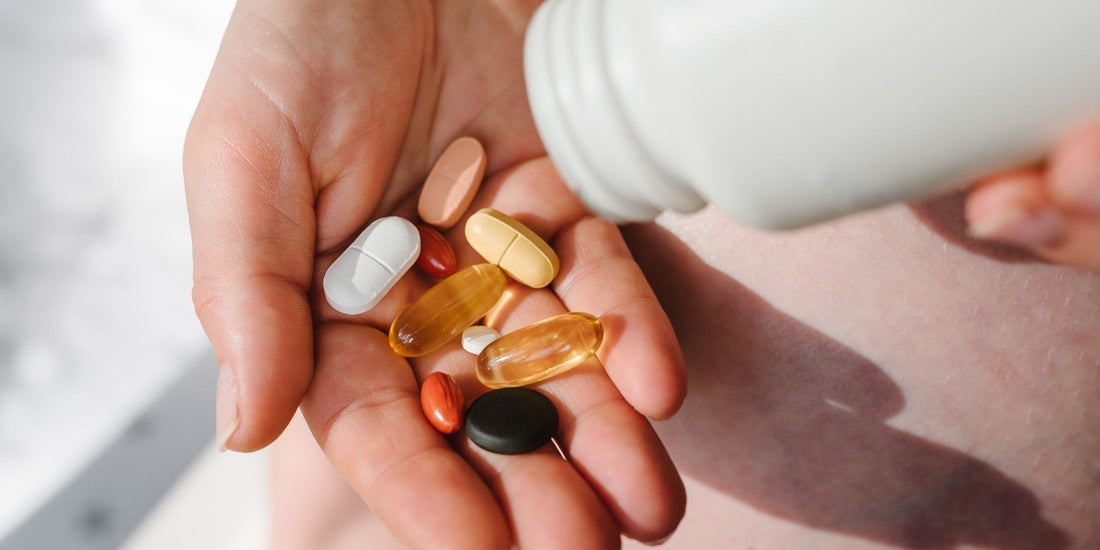Iron is a crucial mineral that plays a significant role in maintaining overall health, especially during pregnancy and the postpartum period. For expecting and new mothers, maintaining adequate iron levels is essential for the well-being of both the mother and baby. In this article, we’ll explore why iron is important during pregnancy, the role of iron postpartum, and how to ensure you're getting enough iron to support your health.
Why Iron is Important During Pregnancy
Iron is vital during pregnancy for several reasons, primarily due to the increased blood volume and the need to support the growing baby. Here’s why iron is essential for pregnant women:
-
Supports Fetal Development: Iron is critical for the baby’s growth and development, particularly the brain. Adequate iron levels ensure the baby receives sufficient oxygen and nutrients during pregnancy, which is vital for healthy development.
-
Prevents Pregnancy Anemia: Pregnant women are at a higher risk of iron deficiency anemia due to increased iron demands. Anemia during pregnancy can lead to fatigue, weakness, and a higher risk of complications like preterm delivery and low birth weight.
-
Builds a Healthy Placenta: The placenta plays a crucial role in nourishing the baby, and iron is essential for its development and function. A healthy placenta ensures the efficient transfer of oxygen and nutrients to the fetus.
-
Prepares for Blood Loss During Delivery: Iron stores help prepare the body for the inevitable blood loss that occurs during childbirth. Maintaining adequate iron levels can reduce the risk of severe anemia after delivery.
The Role of Iron in the Postpartum Period
Iron remains an essential nutrient after childbirth, supporting the body as it recovers and adapts to the demands of new motherhood. Here’s why postpartum iron intake is crucial:
-
Replenishes Iron Stores: Blood loss during delivery can significantly deplete iron stores, especially in women who have had a cesarean section or a complicated delivery. Postpartum women need to replenish their iron levels to avoid anemia and support recovery.
-
Combats Postpartum Fatigue: Many new mothers experience fatigue due to sleep deprivation and the physical demands of caring for a newborn. Iron deficiency can worsen this fatigue, making it even more challenging to manage daily tasks and care for a newborn.
-
Supports Breastfeeding: Iron is important for breastfeeding mothers, as it helps maintain their energy levels and overall health. Although breast milk contains a small amount of iron, a mother’s iron status can influence the quality of breast milk and her ability to sustain breastfeeding.
-
Boosts Mental Health and Cognitive Function: Adequate iron levels support mood and cognitive function. Iron deficiency is linked to an increased risk of postpartum depression and cognitive challenges, which can impact a mother’s ability to care for herself and her baby.
How to Ensure Adequate Iron Intake During Pregnancy and Postpartum
Maintaining healthy iron levels during pregnancy and postpartum is crucial, and it can be achieved through diet and, if necessary, iron supplements. Here are some tips to help ensure you’re getting enough iron:
-
Eat Iron-Rich Foods: Include a variety of iron-rich foods in your diet, such as lean red meat, poultry, fish, beans, lentils, spinach, and iron-fortified cereals. Heme iron, found in animal products, is more easily absorbed by the body than non-heme iron from plant sources.
-
Pair with Vitamin C for Better Absorption: Vitamin C enhances the absorption of non-heme iron from plant-based sources. Pair iron-rich foods with vitamin C-rich foods like citrus fruits, tomatoes, bell peppers, and strawberries to boost iron absorption.
-
Consider Iron Supplements: Some women may require iron supplements during pregnancy and the postpartum period, especially if they have been diagnosed with iron deficiency anemia. Always consult with a healthcare provider before starting any iron supplement to ensure it's appropriate for your needs.
-
Monitor Your Iron Levels: Regular prenatal and postpartum check-ups typically include blood tests to monitor iron levels. If your iron levels are low, your healthcare provider can recommend the best course of action to restore them, whether through dietary changes or iron supplementation.
Iron is an essential nutrient for both pregnancy and the postpartum period, supporting the health of the mother and the developing baby. Ensuring adequate iron intake can help prevent anemia, combat fatigue, and support overall recovery and well-being. By focusing on a balanced diet rich in iron and, if necessary, taking iron supplements, new mothers can maintain healthy iron levels and better navigate the challenges of pregnancy and the postpartum journey.






